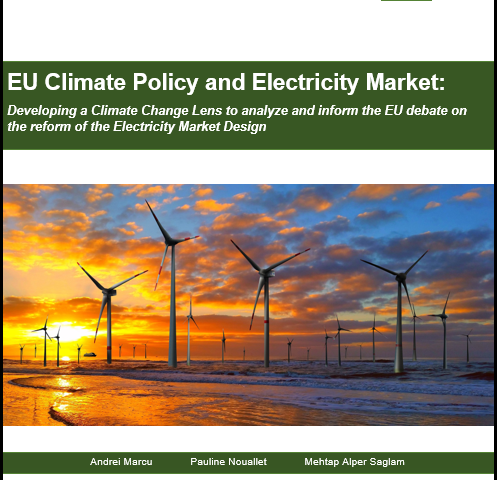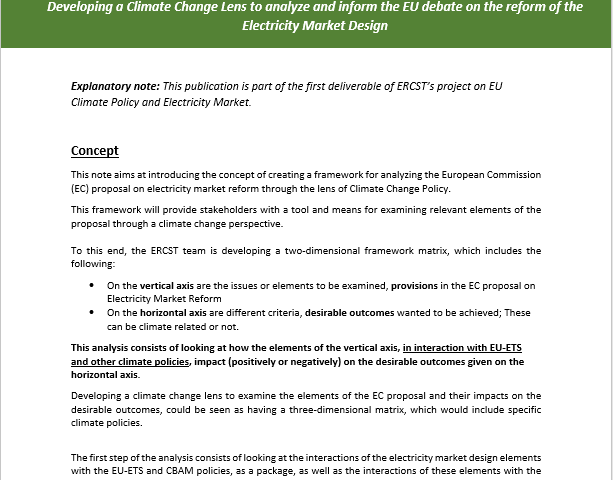The solution that is clearly emerging in the long-term is that of electrification and decarbonization of the power industry through renewables, as well as other sources such as nuclear.
Soaring electricity prices pose challenges for both decarbonisation and competitiveness. Electro-intensive industries are particularly exposed to high and unpredictable electricity prices. Other energy-intensive industries whose decarbonisation pathway involves electrification (e.g. steel) are likely discouraged from making the relevant investments.
The reform of the EU electricity market design (EMD) has been a recurring topic since several years in academic circles (especially in the UK); it gained increasing attention in EU political circles since the end of 2021 and in the course of 2022 amidst soaring energy prices that put the focus on affordability.
The European Commission President Ursula von der Leyen provided in June 2022 the political direction for the EMD reform, with her initial statements alluding to a review and a potential overhaul of the marginal pricing mechanism. A central consideration has been the observation that although the EU generates twice as much electricity from renewables as it does from gas, the power market design was not adapted to the new realities of renewables to allow for the falling cost of renewables to be sufficiently reflected in bills.
Decarbonisation requires a significant amount of investment, and as such the signal from the electricity market, the carbon market, and the interaction between these two needs to ensure a good framework that will incentivize these investments.
Against this backdrop, ERCST launched at the end of 2022 a workstream on the “Interlinkages between Climate Policy and Electricity Market Design”.
The objective of this workstream was to provide continued analytical input, convening, and outreach on the interactions between EU climate policy and electricity market design. In general terms, the project was guided by the following overarching objectives:
- To analyse and inform the EU debate on electricity market design reform through the lens of climate change policy,
- To accompany EU efforts at domestic stakeholder engagement and diplomatic outreach by providing a forum for multi-stakeholder engagement.
ERCST closely followed the EC file on the EU electricity market design reform as it progressed through 2023, as well as animated and informed the debate from a climate policy perspective (see publications below).
RECENT PUBLICATIONS
Reviving Europe’s Industrial Power: how to boost competitiveness through energy
This is a study sponsored by Enel Foundation, and undertaken by Compass Lexecon and ERCST. The EU has pledged to cut GHG emissions and achieve Net Zero by 2050, and one...Electricity Market Design, Decarbonization, and Industries’ competitiveness
Author(s): Andrei Marcu, Pauline Nouallet, Alexandra Maratou, Mehtap Alper SaglamEU Climate Policy and Electricity Market: Developing a Climate Change Lens to analyze and inform the EU debate on the reform of the Electricity Market Design
Author(s): Andrei Marcu, Michael Mehling, Aaron Cosbey, Olivier Imbault, Antonio FernandezRECENT AND UPCOMING EVENTS
ELECTRICITY PRICES IN THE EU – The balance between regulation and markets
October 19 @ 09:30 - 12:00EU Climate Policy and Electricity Market
March 27 @ 15:30 - 17:30EU Climate Policy & Electricity Market Design
May 17 @ 14:30 - 16:30EU Climate Policy & Electricity Market
June 27 @ 14:30 - 16:30EU Climate Policy and Electricity Market
September 12 @ 14:30 - 16:30EU Climate Policy and Electricity Market – Launch Report
October 12 @ 10:30 - 12:30





